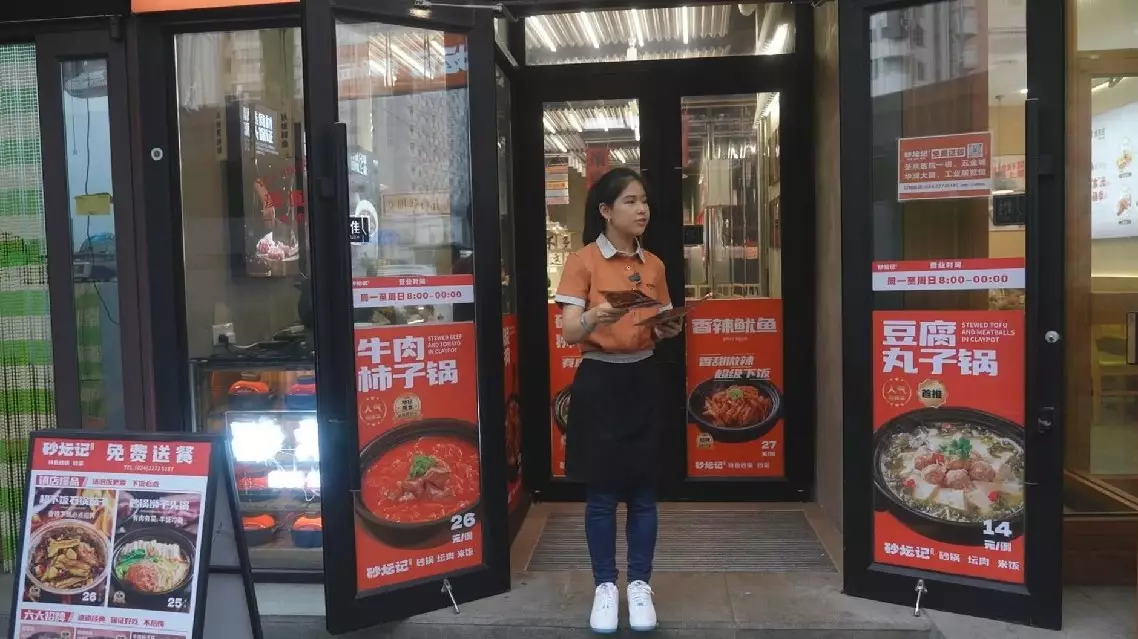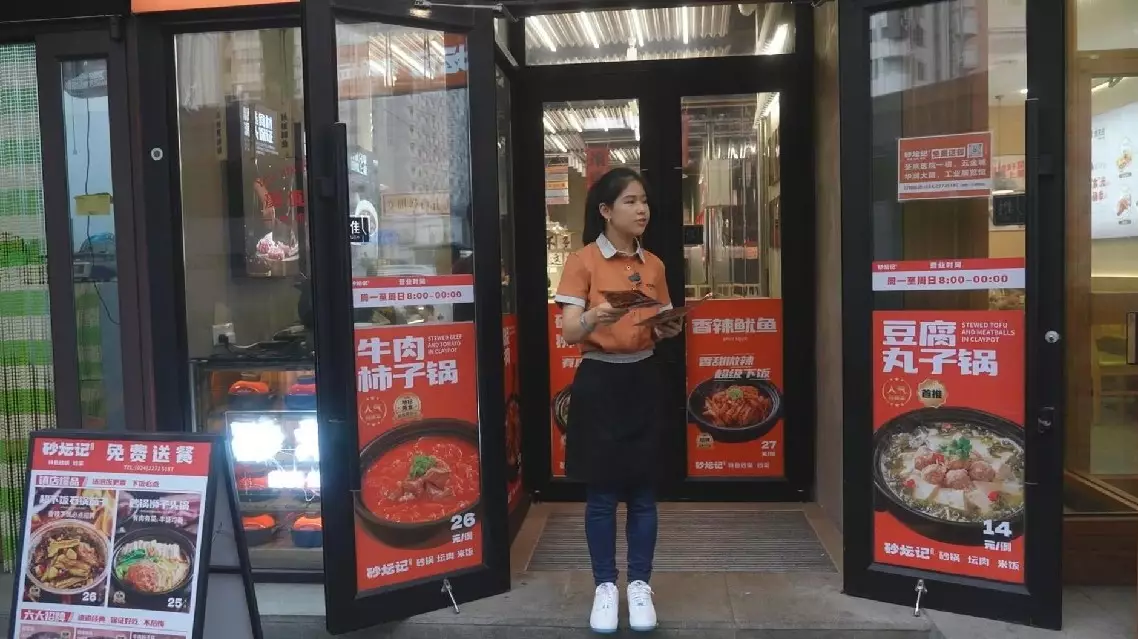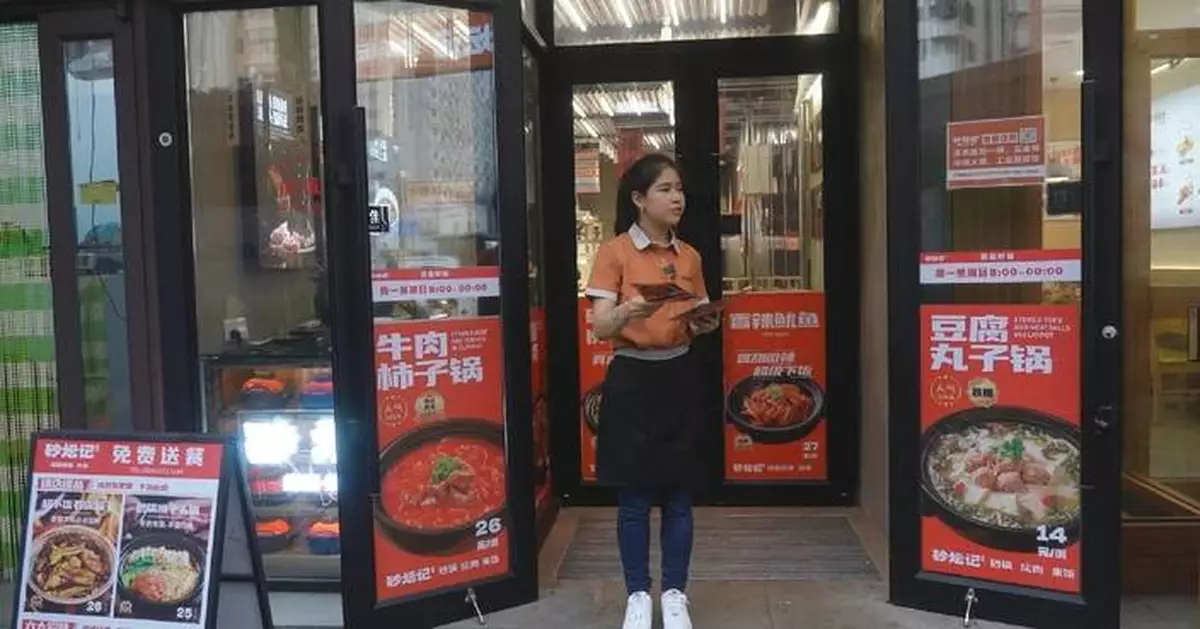A 30-year-old restaurateur from Taiwan is running a successful eatery in Shenyang City, northeast China and shared her reflections on the challenges of adapting to a competitive mainland market and the rewards of building a life rooted in hard work.
Growing up in Taiwan, Xuanxuan began to engage in the catering industry after married to her husband from northeast China's Heilongjiang Province.
"My husband is from Heilongjiang Province. His family has been in the restaurant business for over 30 years. My restaurant primarily features northeastern Chinese cuisine, along with some dishes from Taiwanese cuisine," she said.
Compared with the restaurant industry in Taiwan, Xuanxuan said, that of the mainland has advantages in the overall thinking approach and there are also many companies which will help promote the restaurant to boost its operation.
"I encourage ambitious young people from Taiwan who aren't afraid of challenges to come to the mainland and join the restaurant industry. The industry here benefits from a holistic approach: While restaurant owners in Taiwan may focus on running a single establishment with excellent food, those in the mainland approach the restaurant business with a business-oriented mindset. There are specialized companies that provide services like design and marketing to restaurant owners. The restaurant industry in the mainland is highly competitive, whereas in Taiwan, wealthy individuals tend to avoid investing in restaurants," said Xuanxuan.
For customers, Xuanxuan's restaurant serves dishes cooked upon customers' arrival, which of course preserves the best favor of food.
"I've tried all the restaurants around here, and if you ask me, this one is the best. The taste is great, and nothing is pre-cooked. I come here often, eating here just yesterday," said a customer.
Xuanxuan also shared the differences in management methods, noting that restaurants in the mainland tend to care more about personal relations.
"Honestly, managing people lies at the core of running a restaurant. What differs here from what I know in Taiwan is staff management. Here, the staff comes and goes. Initially, this might have been due to my management style, as I insisted on strictly following the rules. However, in reality, small restaurants like mine thrive on personal relationships," said Xuanxuan.

Restaurant owner from Taiwan brings unique flavors to Shenyang diners

Restaurant owner from Taiwan brings unique flavors to Shenyang diners
Pop-up stores, temporary retail spaces that are open in hustle and bustle business districts for a limited period, typically a few days to weeks, have emerged as a popular sales strategy among retailers targeting young consumers and became a significant driver of increased consumption.
Compared with traditional brick-and-mortar stores or online sales channels, the pop-up store model can efficiently reach a wide range of potential buyers in multiple cities and scenarios at a lower cost.
For instance, at Gate M West Bund Dream Center in east China's Shanghai, a pop-up store, featuring a six-meter-tall Disney's Stitch figure plus exclusive limited-edition merchandise, made this cute fictional character a top hit this May along the Huangpu River. Despite the event lasting only over 40 days, it attracted thousands of people every day to take photos.
According to staff there, many of the blind boxes and dolls for sale are limited editions and were already sold out upon release.
"I feel that exclusive sales can really arouse people's desire to consume. If you miss it, it will be gone. And it is very cute and pretty. It can be posted on moments," said a consumer.
Limited-time offers, exclusive products, or special events associated with pop-up shops creates a sense of scarcity, generate buzz and create a fear of missing out among customers.
Pop-up shops also allow brands to create immersive experiences that go beyond traditional retail environments. By carefully curating the ambiance, decorations, and interactive elements, brands can captivate customers, add excitement and novelty to their shopping journey, and leave a lasting impression.
Since April, China's first-ever LEGO-themed garden has been unveiled at the Bund Finance Center in Shanghai for a limited period, converting the shopping mall into a temporary giant garden featuring thousands of stunning floral creations made from colorful LEGO bricks. By encouraging consumer participation through photo-taking, check-ins, and interactive experiences, the pop-up has successfully pushed the sales of new products to record highs.
"By introducing our new products in this way, our overall sales have been greatly boosted. Consumers' comments can also be fed back to our brand, providing more inspiration for our future product planning and event planning," said Liu Mingsheng, brand manager at LEGO China.
Through the model, brands can enhance their visibility, explore new markets, and trial new product launches. Simultaneously, shopping malls and commercial districts can effectively generate foot traffic in a short period.
"During the period of pop-up activities, the foot traffic is basically doubled compared to regular days. These activities also prolong customers' dwell time within the mall, encouraging spending on dining, leisure browsing, and other purchases, thereby enhancing overall consumption conversion rates," said Wu Yiping, director of Marketing Department at Shanghai Bund Financial Center.

Pop-up stores fuel consumption in China
























































